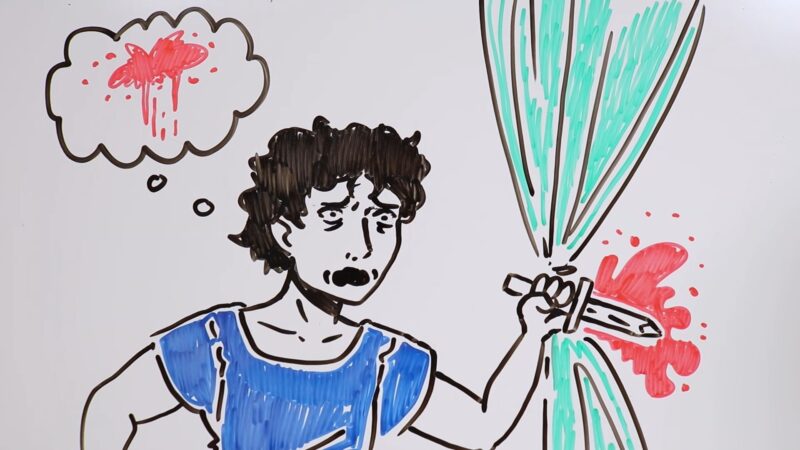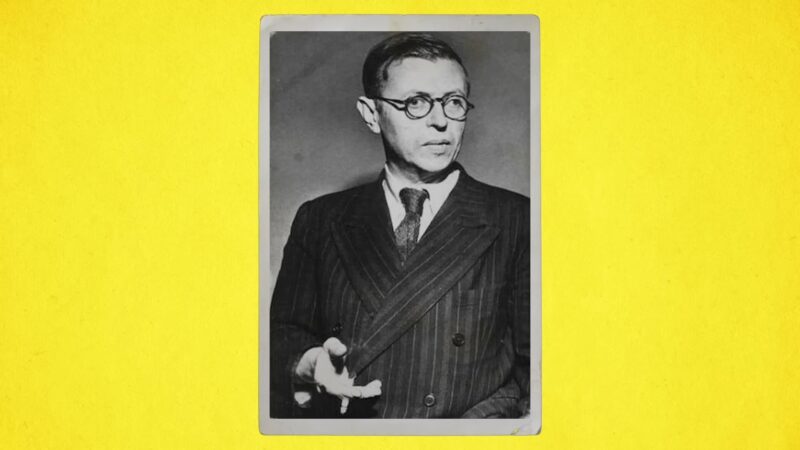Jean-Paul Sartre’s “The Flies” draws heavily from Aeschylus’ “Orestes.” Weaving existential themes into ancient Greek narratives, Sartre presents a dramatic exploration of government ideological control, religious guilt, and radical freedom.
However, the play’s heavy-handed narrative often feels condescending, compromising its overall impact.
Plot Synopsis

The Setting: Thirteen years post-Agamemnon’s murder following his return from the Trojan War, the city is enshrouded in perpetual mourning. The citizens, dressed in black and with eyes covered by symbolic flies, represent guilt, and the city’s decay mirrors their prolonged lamentation.
Characters and Motivations
- Electra: The daughter of the late king, she is consumed by a desire for revenge against Clytemnestra and Aegisthus, the perpetrators of her father’s murder.
- Orestes: Agamemnon’s son, who fled the city as a child, returns as an adult. He wrestles with his role in the revenge plot, striving to act out of free will rather than perceived destiny.
Central Themes and Development
- Confrontation with Authority: A ceremony led by Aegisthus emphasizes forced repentance and mourning. Sartre, in the fashion of “The Shiva Trilogy,” critiques oppressive ideological control, portraying Zeus as a malevolent figure who reveals the power of human freedom.
- Act of Revenge: Orestes, influenced by personal agency, joins Electra in the act of vengeance against Aegisthus and Clytemnestra.
- The Struggle with Guilt: Post-murder, the Furies descend, embodying guilt. While Electra rationalizes her involvement, Orestes staunchly defends his actions, prompting a lengthy monologue on personal moral grounding and the rejection of externally imposed guilt.
Symbolism of the Flies
In a climactic scene, Orestes invokes the imagery of the “Pied Piper,” leading away the physical representation of guilt – the flies. This action liberates the city, emphasizing the overarching theme of freedom from oppressive emotions and societal expectations.
Conclusion and Personal Take
While “The Flies” offers a rich exploration of existentialist thought and the human experience, its dialogue often verges on the pretentious. Its compelling narrative is occasionally overshadowed by its overbearing presentation, making it a divisive work.
Nonetheless, it remains an intriguing integration of philosophy and drama.
Final Rating: 7.5/10

